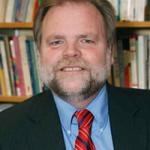“Cleansing the Doors of Perception: A Review of Michael Pollan’s ‘How to Change Your Mind’”
William Blake and, later Aldous Huxley, proclaimed that if we could “cleanse the doors of perception, we would see everything as it is – infinite.” We live in a glorious, amazing, awesome, and awe-full world in which, as Rabbi Abraham Joshua Heschel averred, radical amazement is the primary spiritual response. Michael Pollan’s personal and historical journey through the renaissance of psychedelics, especially in the medical and scientific context, is a testimony to the affirmation that amid the mysteries of life, “the mind is vaster, and the world ever so much more alive, than I knew when I began.”
We live in a lively, interconnected, sea of experience, which requires us to narrow down in order to go about our daily business. It is tough to experience God in a hazelnut or a grain of sand when you’re driving down the highway, operating heavy equipment, or participating in a political debate (although this latter might be interesting!) This narrowing or reducing of experience o the immediate and practical is essential to be socially functional and support your family, but this narrowing cannot be identified with the totality of reality. Reality is more than we can ever imagine, in this ever-evolving, trillion galaxy universe.
The narrowing – consciousness as a reducing valve – often leads us to believe that we are isolated individuals, alone, finite, and disconnected, when, in fact, our lives well up from a world of dynamic relationships. The manipulative world of business and technology is the tip of the iceberg, undergirded by a lively experiential and spiritual world that is constantly “blowing our minds” if we pause long enough to notice the holiness of large and small. At least that is the testimony of mystics as well as persons who voyage into the mystic through LSB, psilocybin, peyote, or near-death experiences. The isolated self opens us up into the living universe.
One of my graduate school professors Bernard Loomer spoke of “size” or “stature” as a primary religious quality, involving the expansion of experience to embrace contrasts and polarities while preserving the centered self. Stature is the playground of mystics, whose transformational and transcendent experiences come from a lifetime of contemplation. It also comes to those who suddenly find themselves transported into enchanted realities, like the Biblical patriarch Jacob who has a dream of a ladder of angels and awakens, awe-filled and stammering, “God was in this place – and I did not know it” or the prophet Isaiah who encounters both the living God and lifetime vocation without warning while worshipping in the Jerusalem temple. It may also come to those who embark on consciousness-widening world of psychedelics.
Mystics tell us that reality is chockful of divinity. Could these same epiphanies come from psychedelics? Can we find God in a mushroom or tablet? Experientially speaking the answer must be “yes.” Journeys with psychedelics break open the isolated self, opening us to the infinite connectedness of life, the divinity residing in all things, and the death of the isolated self and rebirth of global consciousness. These experiences have been found to help people deal with depression, addiction, and terminal illness. Connected to all things and grounded in eternity, the death of the individual self is no longer frightening but an entry way into infinity, and beyond, as Buzz Lightyear from “Toy Story” proclaims.
Pollan’s book is a tour de force into the past and present history and spiritual and scientific aspects of psychedelics. It illuminated – and reminded me of – my own sixties magical mystery tour and its impact on my life. Psychedelics “blew our minds,” but the key to long-term spiritual evolution was grounded in the experience in communities of the spirit and spiritual practices. Unlike many of my co-adventurers during that time, I was motivated by a spiritual quest that I shared with a handful of close companions. We survived and thrived. In my own case, psychedelics inspired me to meditation and then to returning to the church. For me, spirituality involves the interplay of mysticism and self-transcendence in which we go from isolated individuality and self-interest to world loyalty and compassion.
The key question from Pollan is “how to change your mind.” Surely, psychedelics can have a role in transforming us and healing our fear of death. But these best adventures best be taken in the context of caring environments and spiritual-medical supervision. Better yet, religious institutions should claim their role not as dispensaries of psychedelics but as communities inspiring self-transcendence, experiences of wonder, mystery and self-transcendence deepening our love for the earth and its creation and inspiring us to join our mystical journeys with our vocation as God’s partners in healing the earth. We owe Pollan a debt of thanks not only for introducing positive uses of psychedelics and inviting us to claim our own identities as mystics by whatever means we awaken to the theophanies in our midst.
+++
Bruce Epperly is a Cape Cod pastor, professor, and author of fifty books including “Become Fire: Guideposts for Interspiritual Pilgrims,” “The Mystic in You: Discovering a God-filled World,” and “Process Theology: Embracing Adventure with God.”
















